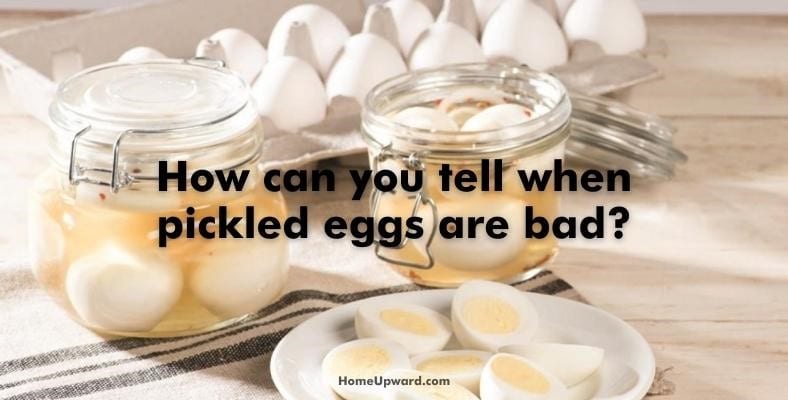There are no safe approved canning methods for eggs. Two approved methods for preserving eggs are: pickling, if kept at 40 degrees or lower and freezing raw. Pickled eggs are peeled, hard-cooked eggs in a solution consisting basically of vinegar, salt, spices, and perhaps other seasonings.

The Nebraska State Extension office says eggs can be preserved 3 ways, not including freeze drying which we will talk about later, and canning isn’t one of them. Eggs can be kept raw below 40 degrees, pickled, and frozen raw.
Essentially, egg washing in America began in the early 20th century and by the time we realized washing the eggs caused them to spoil more quickly, the customer was already accustomed to perfectly clean (and more and more often, white) eggs. European egg-eaters didn’t have to transport eggs as far, and their customers never got used to washed eggs and thus, we’ve stayed on our egg-washed path all this time. It is agreed upon that farm fresh eggs are best left unwashed because they are coated with a bloom that naturally protects the porous eggshell from any bacteria entering. “Through time, the European philosophy of foodborne pathogen control has been that prevention is better than the cure.”
“Eggs used for pickling should have clean, sound shells. Small or medium eggs are usually a good choice for pickling so the seasoning can penetrate into the egg. Fresh eggs are the best to use for pickling to ensure the highest quality possible since the eggs will be stored over a relatively long period of time. However, eggs at least a few days old will peel better after boiling.”
Hens naturally go through periods where they lay zero or far fewer eggs, specifically when they are molting and many don’t lay when the days shorten during the winter. This period can be between 2-4 months, and for some hens it can be shorter- my hens lay zero while molting but at probably 50% during the winter once their feathers return. Some birds don’t lay at all- I have a few of those hens as well. Egg laying depends on length of day, not temperature. For many who keep hens, there’s a glut of eggs in the spring and summer.
Most compelling for my household is that even pro-glassers admit that the yolks break after being stored in a water glass method. My family would riot if all winter we were trying to fry eggs and having the yolks break. Even if you weren’t worried about salmonella nor the potential effect of ingesting lime, a broken yolk is a tragedy not to be taken lightly.
I have never personally used either of the traditional oat-burial or water glass methods. I would love to hear from someone who has (or who remembers grandma’s use of these methods). I do pickle my eggs and I do maintain the correct temperature range (and whether I use electricity or not is not the discussion here). The temperature must remain fairly consistent, that is the key.
Pickled eggs are absolutely delicious and—especially if you skip the water bath canning—as easy as pouring water. I wish I could invite you over for a salad, or for a barbecue featuring my famous potato salad as a show-stopping side dish (thank you, pickled eggs). Try a jar out just so that you can experiment with the flavors and using pickled eggs in recipes. You will get hooked, just you wait and see.
People have been preserving eggs since…well….eggs. We know so much more about safety measures now than ever before, and we need to follow the advice given. With that said, however, I simply do not have room in my refrigerator for many pickled eggs. I do not see it as a viable way of preserving eggs if they are taking the same electricity-dependent space in my fridge that the raw eggs occupied. Do I have other options besides pickling? Perhaps not from a protecting-myself-legally standpoint.
I do water bath can my pickled eggs, and I probably overcook them. Are they rubbery? Well, I do not think it is extreme and they still work rather well in recipes in which I smash or cut them. I like them as is, but I can see that it might be a matter of preference. In either case, the process-on-record is that you should still refrigerate them.
Eggs should not be pressure canned. But did I not just say that pressure canning is the only approved method for non-acidic foods, such as green beans or venison? Yup, that is right. So it would stand to reason that you could just pressure can the eggs to kill the spores and then the low acid environment of the eggs would not matter. Right? Wrong. Eggs are too sensitive, too volatile for the pressure canning method. The heat is too high and too long and you have a nasty rubbery mess that you will not want to consume. For all I know they could be safe, but there is nothing left worth saving. Many say that they do not care for pickled eggs that were even water bath canned. Those who advocate a water bath canning generally suggest that you only boil the eggs just enough to peel them but not to cook them entirely—that way, the actually canning method will cook the egg and hopefully not overcook it.
PUB EGGS | Super EASY Shelf-Stable Pickling Recipe
FAQ
How do you preserve eggs for long term storage?
How did they preserve eggs in the old days?
How do you preserve eggs without vinegar?
Can eggs be canned in a water bath?
